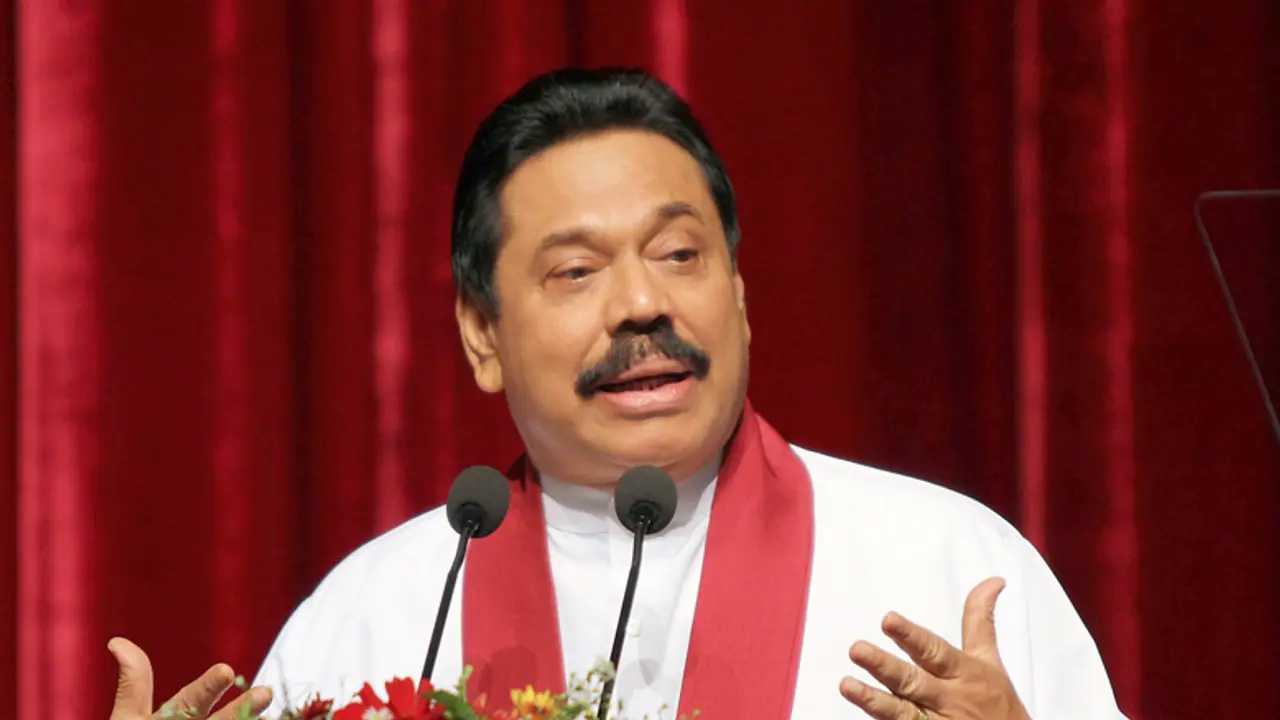Former PM Wickremesinghe, who has termed his sacking as unconstitutional, claimed that he is still the legally appointed Prime Minister with parliamentary majority.
Colombo: Sri Lanka's newly-appointed Prime Minister Mahinda Rajapaksa has called for a snap parliamentary election to allow people to vote for a new programme to overcome the island nation's economic and political crisis.
This was the first public statement by the former strongman since President Maithripala Sirisena appointed him as the new premier after sacking Ranil Wickremesinghe on Friday night.
“The primary objective of the political party leaders and parliamentarians who have joined me is to immediately hold the provincial council elections that had been postponed continuously and also to call a parliamentary election as soon as possible so as to give the people the opportunity to vote for a programme that will bring the country out of the encompassing economic, political and social crisis," he said.
Rajapaksa's return to power ended a more than three-year-old coalition government that was formed by Sirisena and Wickremesinghe on a promise to combat corruption and financial irregularities. Sirisena's broader political front United People's Freedom Alliance (UPFA) quit the alliance with Wickremesinghe's United National Party (UNP).
Highlighting the alleged misgovernance of Wickremesinghe, Rajapaksa said, “The value of the rupee has fallen alarmingly. Our country has been downgraded by the rating agencies. The people are oppressed by the ever rising cost of living." He said he was invited by Sirisena to accept the post of Prime Minister after the President's party left the coalition government with Wickremesinghe.
"Today, our country is in a state of uncertainty. Details of a plot to assassinate the president and the former defence secretary have come to light. Those involved in this conspiracy are being exposed by their own actions," he said.
Sirisena had last week accused Wickremesinghe of going slow on the investigations after a man named Namal Kumara in mid-September disclosed the alleged plot to assassinate him and former defence minister Gotabhaya Rajapaksa. Sri Lanka's next parliamentary elections are not due earlier than February, 2020. However, the next presidential election must be called prior to that.
Wickremesinghe, who has termed his sacking as unconstitutional, claims that he is still the legally appointed Prime Minister with parliamentary majority.
He had sought an emergency session of the parliament to prove his majority. However, Sirisena suspended the Parliament till November 16. Speaker Karu Jayasuriya on Sunday had questioned the president's decision to suspend parliament till November 16, saying it will have "serious and undesirable" consequences on the country.
